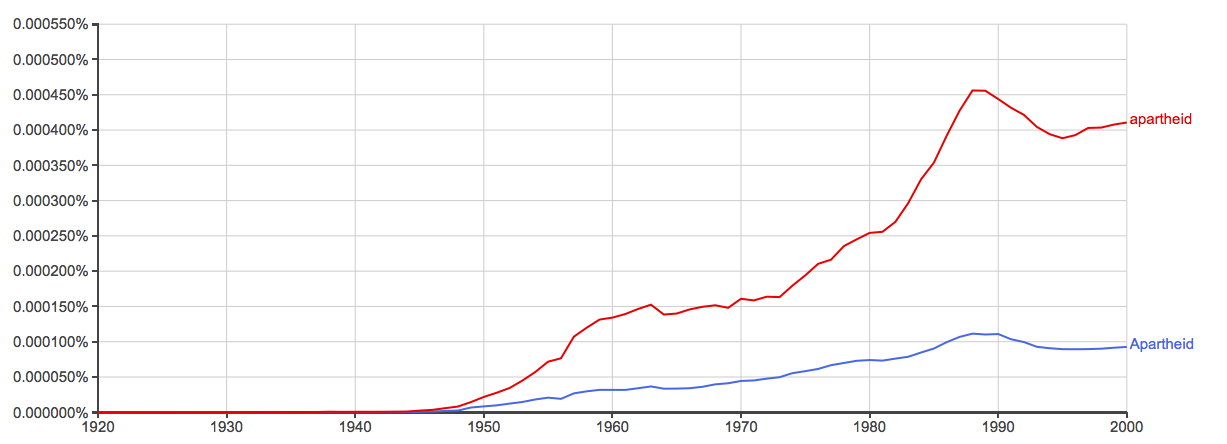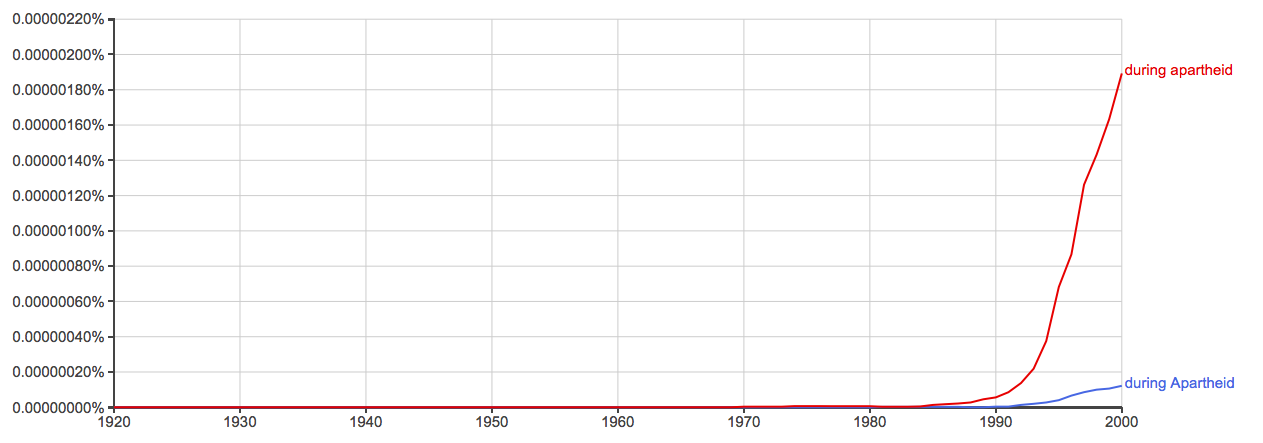I would not capitalize "apartheid". None of the dictionaries I have checked capitalize it as a headword (MW, AHD:, Collins, Oxford).
Capitalization, like punctuation, is one of the less settled areas of English orthography. I somewhat doubt that there is any definite answer about whether it is "correct" or "incorrect" to capitalize this word, so I won't attempt to answer that part of the question.
The Google Ngram Viewer shows lowercase as more frequent than uppercase:
This holds also for "during apartheid/Apartheid":
The Oxford English Dictionary does not capitalize it as a headword, and only includes, as far as I can see, one quotation where it is capitalized in a non-sentence-initial position; itposition (it is also enclosed in quotation marks in this context):
1949 Manch. Guardian 13 July 4/6 Thus Dr. Malan's policy of ‘Apartheid’ for the non-Europeans, which is only the Dutch word for Field Marshal Smuts's policy of ‘segregation’, which in turn is only a pretty word for repression, is achieving a position of ‘Apartheid’, in the literal sense of isolation, for the nation as a whole.
Compared to this, the OED gives about 10 examples of lowercase apartheid from the late 1940s to the 1960s, which are mostly italicized.
There may be arguments for capitalizing the first letter (at least in some contexts), but the preferred usage seems to be to write "apartheid" with a lowercase letter.


